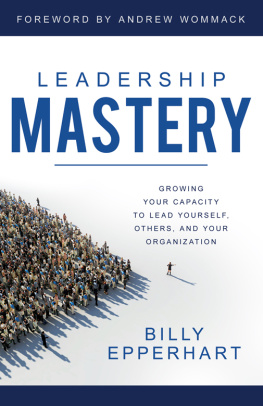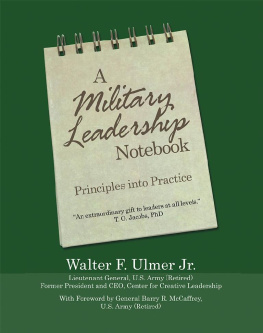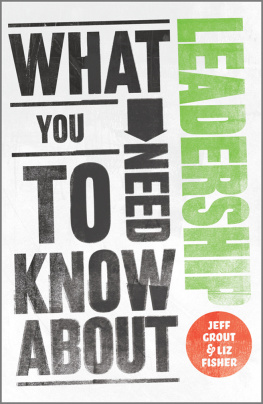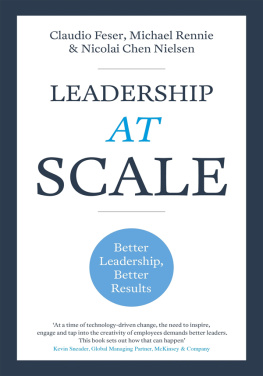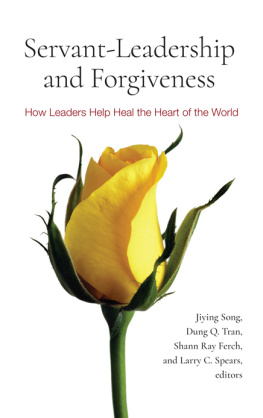CRITICAL PERSPECTIVES ON LEADERSHIP
Within contemporary culture, leadership is seen in ways that appeal to celebrated societal values and norms. As a result, it is becoming difficult to use the language of leadership without at the same time assuming its essentially positive, intrinsically affirmative nature. Within organizations, routinely referring to bosses as leaders has, therefore, become both a symptom and a cause of a deep, largely unexamined new conceptual architecture. This architecture underpins how we think about authority and power at work. Capitalism, and its turbo-charged offspring neo-liberalism, have effectively captured leader and leadership to serve their own purposes. In other words, organizational leadership today is so often a particular kind of insidious conservativism dressed up in radical adjectives.
This book makes visible the work that the language of leadership does in perpetuating fictions that are useful for bosses of work organizations. We do this so that we and anyone who shares similar discomforts can make a start in unravelling the fiction. We contend that even if our views are contrary to the vast and powerful leadership industry, our basic arguments rest on things that are plain and evident for all to see.
Critical Perspectives on Leadership: The Language of Corporate Power will be key reading for students, academics and practitioners in the disciplines of Leadership, Organizational Studies, Critical Management Studies, Sociology and the related disciplines.
Mark Learmonth is Professor of Organization Studies at Durham University, UK. He researches the personal consequences of work.
Kevin Morrell is an Associate Dean at Durham University, UK. He researches how organizations and individuals contribute to the public good.
ROUTLEDGE STUDIES IN LEADERSHIP RESEARCH
6. Revitalising Leadership
Putting Theory and Practice into Context
Suze Wilson, Stephen Cummings, Brad Jackson, and Sarah, Proctor-Thomson
7. Women, Religion and Leadership
Female Saints as Unexpected Leaders
Edited by Barbara Denison
8. Leadership Matters?
Finding Voice, Connection and Meaning in the 21st Century
Edited by Chris Mabey and David Knights
9. Innovation in Environmental Leadership
Critical Perspectives
Edited by Benjamin W. Redekop, Deborah Rigling Gallagher, and Rian Satterwhite
10. After Leadership
Edited by Brigid Carroll, Suze Wilson, and Josh Firth
11. Creative Leadership
Contexts and Propsects
Edited by Charalampos Mainemelis, Olga Epitropaki, and Ronit Kark
12. Theoretical Perspectives of Strategic Followership
David Zoogah
13. Good Dividends
Responsible leadership of Business Purpose
Edited by Steve Kempster and Thomas Maak
14. Leading in the Age of Innovations
Change of Values and Approaches
Lenka Theodoulides, Gabriela Kormancov, and David Cole
15. Critical Perspectives on Leadership
The Language of Corporate Power
Mark Learmonth and Kevin Morrell
First published 2019
by Routledge
52 Vanderbilt Avenue, New York, NY 10017
and by Routledge
2 Park Square, Milton Park, Abingdon, Oxon OX14 4RN
Routledge is an imprint of the Taylor & Francis Group, an informa business
2019 Taylor & Francis
The right of Mark Learmonth and Kevin Morrell to be identified as authors of this work has been asserted by them in accordance with sections 77 and 78 of the Copyright, Designs and Patents Act 1988.
All rights reserved. No part of this book may be reprinted or reproduced or utilised in any form or by any electronic, mechanical, or other means, now known or hereafter invented, including photocopying and recording, or in any information storage or retrieval system, without permission in writing from the publishers.
Trademark notice: Product or corporate names may be trademarks or registered trademarks, and are used only for identification and explanation without intent to infringe.
Library of Congress Cataloging-in-Publication Data
Names: Learmonth, Mark, author. | Morrell, Kevin, author.
Title: Critical perspectives on leadership : the language of corporate power / Mark Learmonth and Kevin Morrell.
Description: New York, NY : Routledge, 2019. |Series: Routledge studies in leadership research | Includes bibliographical references and index.
Identifiers: LCCN 2019001027| ISBN 9781138093980 (hardback) | ISBN 9781138093997 (pbk.) | ISBN 9781315105994 (ebook)
Subjects: LCSH: Leadership. | Communication in management.
Classification: LCC HD57.7 .L43765 2019 | DDC 658.4/092014dc23
LC record available at https://lccn.loc.gov/2019001027
ISBN: 978-1-138-09398-0 (hbk)
ISBN: 978-1-138-09399-7 (pbk)
ISBN: 978-1-315-10599-4 (ebk)
Figure
Tables
We are grateful to many people who have contributed to our thinking about (and against) leadership over the years. We should start by thanking David Varley at Routledge who invited us to write this book while he was Commissioning Editor for Business, Management and Accounting research. We would also like to mention the people who very generously undertook to read an early version of the full draft and who provided us with insightful comments: Todd Bridgman, David Clough, John Edmonds, Jon Harding, Mike Humphreys, Mike Klein, James Preece and Suze Wilson. In addition, Jackie Ford, Nancy Harding, Hugh Lee and Philip Warwick deserve special thanks for their ongoing comments and ideas in many informal conversations. We would also like to thank Gerlinde Mautner for introducing us to corpus linguistics. Naturally, all the views (and errors) in the book remain our own.
Finally, we are enormously grateful to our immediate families for their support during the writing of this book. Mark thanks Glynis, James and Katie. Kevin thanks Sarah, Emily, Ruby and Jake.
Who Is This Book For
If you have ever been suspicious or cynical about the use of terms like leader and leadership, we have written this book for you. You are in good company if you are suspicious of leadership. Here is one of the things that the novelist George Orwell wrote about the leadership of Napoleon the pig in his famous novel, Animal Farm:
It had become usual to give Napoleon the credit for every successful achievement and every stroke of good fortune. You would often hear one hen remark to another, Under the guidance of our Leader, Comrade Napoleon, I have laid five eggs in six days; or two cows, enjoying a drink at the pool, would exclaim, Thanks to the leadership of Comrade Napoleon, how excellent this water tastes! (Orwell, 1945/2000: 678)
You may have sat through a leadership development course, doubting any magical transformation into leader would happen to you or those around you; doubting any magical transformation, even though most of the other people on the course, like the animals in Animal Farm, seem to be buying in to it all. Perhaps you have had to re-describe your job and work experiences using a leadership competency framework. Maybe you are tired of the latest banalities from the treadmill of leadership research. Or perhaps you are cynical, in the same sort of way that Orwell appears to have been, because when you think about the people running your organization it seems bizarre they could be described as leaders. It could even be that in your own work you have been called a leader, or you have been told to show leadership and rather than thinking at last! felt uncomfortable. Or perhaps you heard a colleague being described as a leader and thought to yourself who




